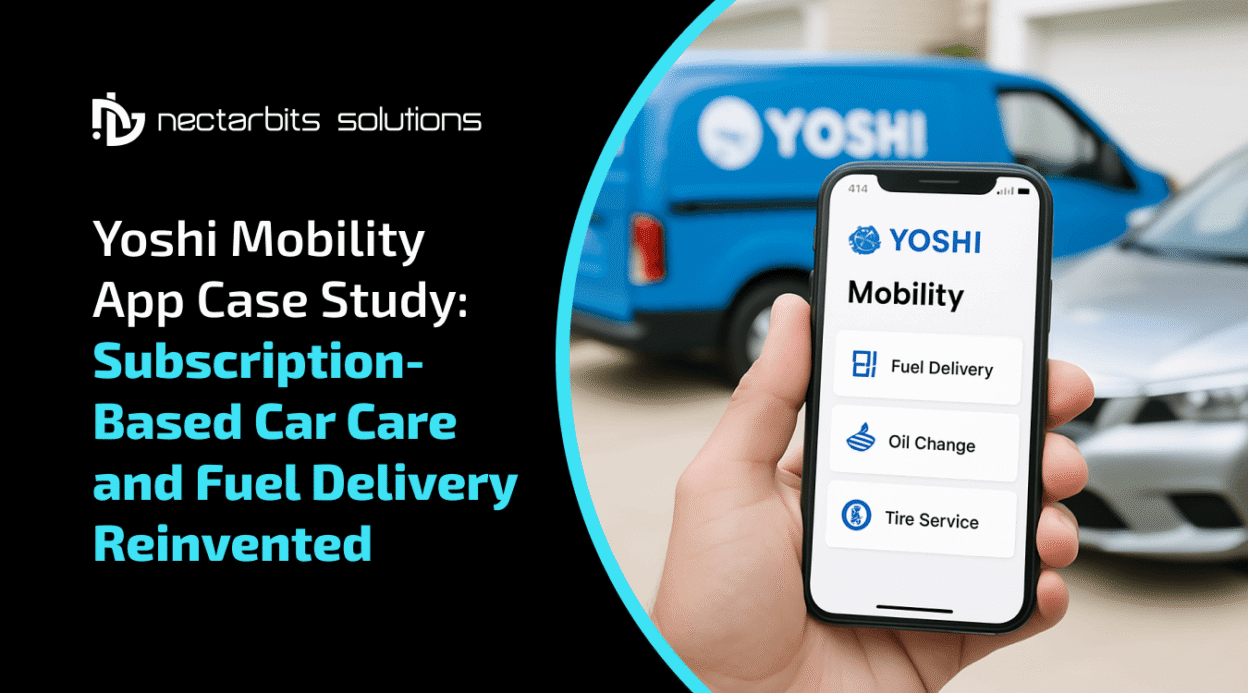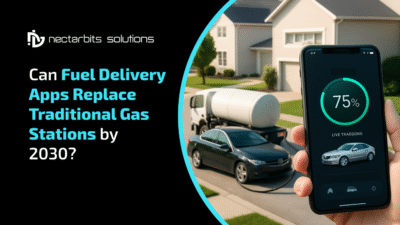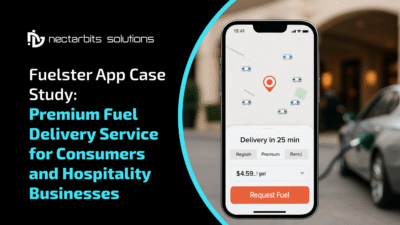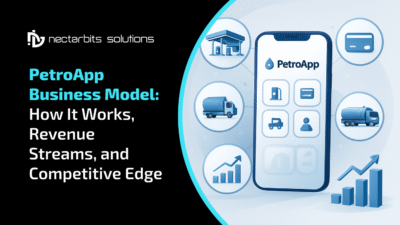Yoshi Mobility, since its inception in 2015, has undergone a remarkable transformation, evolving from a pioneering mobile fuel delivery service to a comprehensive provider of mobile automotive solutions. This strategic pivot, particularly towards electric vehicle (EV) charging and fleet services, positions Yoshi at the forefront of the changing automotive landscape.
A Brief History of Yoshi Mobility
Founded in 2015, Yoshi Mobility initially made a name for itself by offering the unprecedented convenience of delivering fuel directly to customers’ vehicles. The concept was simple: users would schedule a delivery via an app, and a Hazmat-certified technician would refuel their car wherever it was parked. This model aimed to save customers time and eliminate the hassle of gas station visits.
Over the years, Yoshi recognized the broader market need for on-demand vehicle services and the accelerating shift towards electric mobility. In a strategic move, Yoshi Mobility’s fuel delivery division was acquired by EZFill Holdings in January 2025. This acquisition marked a significant pivot, allowing Yoshi to fully concentrate on its expanded suite of mobile automotive services. The company has raised over $74.6M in funding from notable investors including General Motors Ventures, Bridgestone Americas, ExxonMobil, and even high-profile individuals like NBA All-Star Kevin Durant and NFL legend Joe Montana. In March 2024, Yoshi acquired Mobile Auto Concepts Inc. (MACi) to strengthen its mobile service expansion, particularly in tire care, preventative maintenance, and eco-friendly washes.
Understanding the Business Model: The Evolution Beyond Fuel
Yoshi Mobility’s business model is now centered on providing a seamless, tech-enabled, and comprehensive range of mobile automotive services, with a strong emphasis on fleet and enterprise solutions. The core idea is to bring the garage to the vehicle, wherever it may be.
How Does The Business Model Work?
Yoshi leverages a sophisticated technology platform that includes a user-friendly mobile application for individual customers and a dedicated web portal for commercial fleets.
- Scheduling & Service Request: Users or fleet managers schedule services (EV charging, inspections, maintenance) through the app or web portal, selecting a convenient time and location.
- Dispatch & Logistics: Yoshi’s intelligent backend system optimizes routes and dispatches its network of certified mobile technicians.
- On-Site Service Delivery: Highly trained technicians arrive at the specified location with specialized vehicles and equipment to perform the requested services. This can range from plugging in a mobile EV charger to conducting a virtual inspection via video call or performing an oil change.
- Real-time Updates & Completion: Customers receive real-time updates on service progress. Upon completion, a digital record or report is provided.
- Payment & Billing: Payments are processed securely through the platform. For fleets, consolidated billing and data reporting are available.
Current Primary Focus: The Three Pillars
Yoshi Mobility’s current operations are primarily built upon three evolving and interconnected service lines:
- Mobile EV Charging: This is a significant growth area. Yoshi offers “rapidly deployable EV solutions” for commercial fleets, particularly addressing “gap-charging” needs during the transition to electric vehicles or when scaling faster than traditional infrastructure can be built. Their mobile units, including fully electric 240kW DC fast chargers, can deliver multiple charges in one trip, effectively electrifying parking spaces in large fleet yards or corporate campuses. They also offer 120kW mobile power generators for off-grid or temporary charging needs.
- Virtual Vehicle Inspections: Leveraging AI-powered verification and real-time video, Yoshi provides virtual inspections for partners like Uber and Turo drivers, as well as for commercial fleets. ASE-certified inspectors conduct these inspections remotely, offering a fast and compliant way to meet requirements (e.g., FMCSA standards for DOT annual inspections).
- On-site Preventative Maintenance: Beyond fuel and charging, Yoshi offers a suite of mobile car care services directly to vehicles. This includes oil changes, tire care and replacement, multi-point inspections, and eco-friendly car washes. This comprehensive offering streamlines vehicle maintenance for both individual customers and large fleets.
Key Differentiators and Value Proposition:
- Unparalleled Convenience: Eliminates the need for customers to drive to service centers, wait in lines, or disrupt their day. Services come to them.
- Time-Saving: Reduces vehicle downtime, which is crucial for commercial fleets.
- Efficiency for Fleets: Offers centralized management, bulk scheduling, data reporting, and on-site services, leading to significant operational improvements and reduced labor costs for businesses with large vehicle inventories.
- Future-Ready & Sustainable: Strong pivot to mobile EV charging and eco-friendly services aligns with the global shift towards sustainable transportation.
- Technology-Driven: A robust app and backend logistics platform ensure seamless scheduling, tracking, and service delivery, with features like AI-powered verification for inspections.
- Safety & Compliance: Certified technicians and adherence to industry standards (e.g., Hazmat for fuel, ASE for inspections, FMCSA for DOT) ensure reliable and compliant services.
- Flexibility: Services can be tailored to individual or fleet needs, with flexible scheduling options.
Benefits of Using Aggregator Apps Like Yoshi
While Yoshi operates its own direct service platform, its model shares many benefits common to aggregator-like services in the mobile service industry:
- Centralized Access: Customers can access a variety of automotive services from a single platform, eliminating the need for multiple apps or physical visits.
- Comparison & Transparency: Users can easily view service options, pricing (though often custom for fleets), and scheduling availability.
- Efficiency & Time-Saving: The primary benefit for users is the unparalleled convenience of having services delivered directly to their location, saving time and effort.
- Streamlined Management: For fleets, such a platform allows for easy management of multiple vehicles, tracking service history, and ensuring compliance.
Key Partners
Yoshi Mobility has fostered strategic partnerships crucial to its growth and service delivery:
- Investors: General Motors Ventures, Bridgestone Americas, ExxonMobil, Y-Combinator, Kevin Durant, Joe Montana, Shikra Limited, Universal Motors Agencies, Openner, Dongah America, Seed Group, Valley Oak Investments. These investors provide not only capital but also strategic industry connections.
- Automotive OEMs & Connected Car Platforms: Integrations with platforms like General Motors’ OnStar program allow for enhanced service delivery and vehicle data access.
- Ride-share & Autonomous Vehicle Companies: Partners like Uber, Turo, Zipcar, Getaround, and various autonomous vehicle companies leverage Yoshi’s services for their fleets and drivers.
- Industry Organizations: Partnership with CALSTART, a national nonprofit focused on clean transportation, to advance EV charging technologies and policy initiatives.
- Acquired Entities: Mobile Auto Concepts Inc. (MACi) was acquired to expand mobile service capabilities.
- Service Providers (Internal): While not external partners in the traditional sense, Yoshi relies heavily on its network of Hazmat-certified fuel technicians and ASE-certified vehicle inspectors.
Read More: Learn about the tech stack for on-demand fuel delivery app development behind services like Yoshi’s original model.
Target Consumers
Yoshi Mobility serves a diverse customer base, with an increasing focus on:
- Commercial Fleets & Enterprise Customers: This includes ride-share operators, autonomous vehicle companies, corporate campuses, delivery fleets, and other businesses managing large numbers of light-duty and potentially heavy-duty vehicles. Their services are designed to maximize uptime and efficiency for these businesses.
- Busy Individual Car Owners: While the emphasis has shifted, individuals who value convenience and time-saving continue to be a segment, particularly for on-site maintenance and virtual inspections.
- EV Owners/Operators: A growing segment as Yoshi expands its mobile EV charging solutions.
Marketing Channels Leveraged by Yoshi Mobility
Yoshi employs a multi-faceted marketing strategy, primarily focused on B2B channels given its pivot, but also maintaining a B2C presence:
- Digital Marketing:
- Search Engine Optimization (SEO): Optimizing its website and content for relevant keywords related to mobile car care, EV charging, and fleet services.
- Paid Search (SEM): Running targeted campaigns on Google and other search engines.
- Social Media Marketing: Engaging with potential customers and partners on platforms like LinkedIn (for B2B), Facebook, and Instagram, showcasing convenience and efficiency.
- Content Marketing: Publishing blog posts, case studies, and articles highlighting the benefits of mobile automotive services, particularly for fleets and EV adoption.
- Direct Sales & Business Development: Building relationships directly with fleet managers, corporate clients, and automotive businesses. This is crucial for securing large enterprise contracts.
- Partnerships & Integrations: Leveraging partnerships with major players like Uber and GM for co-marketing opportunities and integrated service offerings. Being the preferred service provider for such platforms naturally drives customer acquisition.
- Public Relations: Announcing funding rounds, acquisitions, and new service launches to gain media attention and build credibility.
- Referral Programs: Encouraging existing satisfied customers to refer new ones.
- Industry Events & Conferences: Participating in automotive, fleet management, and EV-focused trade shows to showcase their solutions.
Revenue Model
Yoshi Mobility generates revenue through several models:
- Service Fees: Charging per service performed (e.g., per EV charge, per inspection, per oil change, per car wash). Pricing for EV charging is often based on location and enterprise needs.
- Subscription Models (Potential/Past): While historically offering subscriptions for fuel delivery, it’s likely they explore similar models for fleets, offering bundled services or unlimited access for a recurring fee.
- Bulk Contracts/Enterprise Agreements: For commercial fleets, revenue comes from long-term contracts for recurring services across their entire vehicle inventory. This often involves custom pricing based on fleet size, service volume, and location.
- Partnership Agreements: Revenue from integrated services with partners like Uber or Turo, where Yoshi may receive a fee for each inspection or service facilitated through the partnership.
How Do They Make Money?
Yoshi makes money by providing convenience and efficiency directly at the customer’s location. Instead of customers spending time and money traveling to a service station, Yoshi brings the service to them. For fleets, this translates directly into reduced operational costs (less downtime, no need to pay staff to shuttle vehicles, better compliance management) for which they are willing to pay a premium. The scale of fleet operations allows for significant revenue generation through recurring contracts.
Profit Margins
Specific profit margins for Yoshi Mobility are not publicly disclosed as it is a private company. However, in general, mobile service businesses can achieve healthy margins by:
- Optimizing Logistics: Efficient routing and scheduling of technicians minimize travel time and fuel costs.
- Labor Efficiency: Multi-skilled technicians capable of performing various services improve labor utilization.
- Premium Pricing for Convenience: Customers and especially businesses are often willing to pay more for the time-saving and convenience benefits.
- Scalability: As the number of vehicles serviced per technician increases, the fixed costs are spread over a larger revenue base, improving margins.
- Reduced Overhead: Compared to traditional brick-and-mortar service centers, mobile operations have lower real estate and facility maintenance costs.
- Fleet Contracts: Long-term, high-volume contracts with fleets provide predictable and often higher-margin revenue compared to one-off individual services.
- Leveraging Technology: AI-powered route optimization and virtual inspections reduce operational costs and increase efficiency.
Cost Structure
Yoshi Mobility’s primary costs likely include:
- Labor Costs: Wages, benefits, and training for Hazmat-certified technicians, ASE-certified inspectors, and customer support staff. This is typically the largest component.
- Fleet & Equipment Costs: Acquisition, maintenance, and insurance of specialized service vehicles (vans, trucks, mobile EV chargers, mobile power generators).
- Fuel/Energy Costs: For their service fleet and the EV charging services they provide.
- Technology & Software Development: Costs associated with developing, maintaining, and updating the mobile app, web portal, logistics software, and AI capabilities.
- Insurance & Regulatory Compliance: High costs associated with Hazmat regulations (for historical fuel delivery, and potentially for mobile charging units), general liability, and worker’s compensation.
- Marketing & Sales: Customer acquisition costs for both B2C and B2B segments.
- Administrative & Overhead: Office space, utilities, management salaries, legal, and accounting.
- Inventory Costs: Tires, oil, parts for maintenance services, and the energy for EV charging.
Want to build your own clone?
Building a clone of Yoshi Mobility would involve significant investment and a multi-faceted approach. Here’s a high-level overview:
- Market Research & Niche Identification: Determine your specific service offering (e.g., mobile oil changes, tire repair, EV charging, inspections) and target market (individual consumers, specific fleet types).
- Business Plan Development: Detail your value proposition, revenue model, operational plan, marketing strategy, and financial projections.
- Legal & Regulatory Compliance: This is critical. Understand local, state, and federal regulations for mobile automotive services, particularly if dealing with fuel or hazardous materials. Licensing, certifications (Hazmat, ASE), and insurance are paramount.
- Technology Development:
- User App: For service booking, tracking, payment, and notifications.
- Driver/Technician App: For order management, navigation, service checklists, and communication.
- Admin/Fleet Portal: For managing customers, technicians, services, scheduling, billing, and reporting.
- Backend System: Robust infrastructure for real-time logistics, data management, payment processing, and potentially AI-driven route optimization.
- Fleet & Equipment Acquisition: Purchase or lease specialized vehicles equipped for your chosen services (e.g., mobile service vans, EV charging units).
- Recruitment & Training: Hire and train certified technicians and support staff.
- Marketing & Launch: Execute your marketing strategy to acquire initial customers.
The cost to develop an app like Yoshi can range from $50,000 to $250,000+ for the initial development, depending on complexity, features, and geographical location of the development team. This excludes operational costs, fleet acquisition, and ongoing maintenance.
Conclusion
Yoshi Mobility’s journey from a niche mobile fuel delivery service to a diversified mobile automotive solutions provider highlights its adaptability and foresight in a rapidly evolving industry. By focusing on convenience, technology, and the growing needs of commercial fleets and EV owners, Yoshi has carved out a unique and promising position. Its strategic partnerships and comprehensive service offerings underscore its commitment to becoming a leading player in the future of vehicle maintenance and energy delivery.
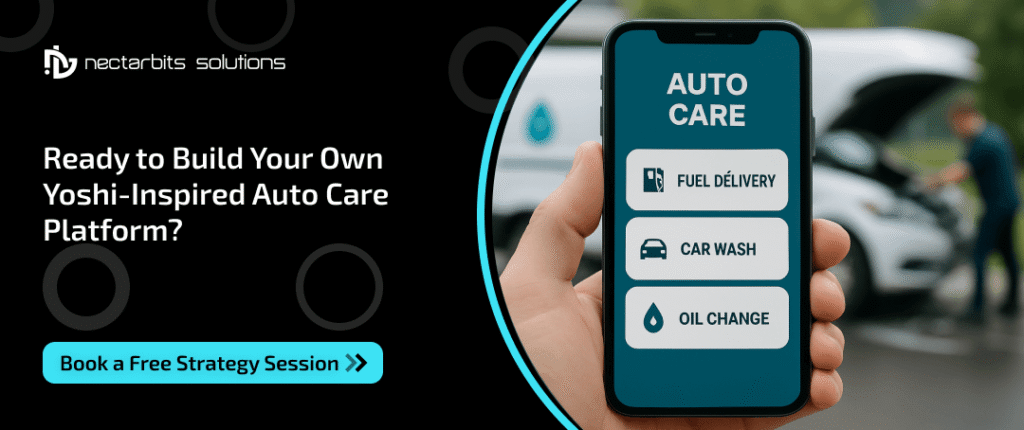
Frequently Asked Questions (FAQs)
Q1: What services does Yoshi Mobility currently offer?
A1: Yoshi Mobility currently focuses on mobile EV charging, virtual vehicle inspections, and on-site preventative maintenance services like oil changes, tire care, and car washes.
Q2: Did Yoshi Mobility stop delivering fuel?
A2: Yes, Yoshi Mobility’s fuel delivery division was acquired by EZFill Holdings in January 2025, allowing Yoshi to pivot entirely to its expanded mobile automotive services.
Q3: Who are Yoshi Mobility’s main customers?
A3: While they still serve individual car owners, their primary focus is on commercial fleets and enterprise customers, including ride-share companies, autonomous vehicle operators, and corporate campuses.
Q4: How does Yoshi Mobility’s mobile EV charging work?
A4: Yoshi uses rapidly deployable mobile EV charging units, including fully electric 240kW DC fast chargers, that can come to fleet yards or corporate campuses to charge multiple vehicles without needing fixed infrastructure or moving vehicles.
Q5: What are the benefits of using Yoshi Mobility for fleets?
A5: Benefits for fleets include reduced vehicle downtime, increased operational efficiency, centralized management, compliance assurance (through inspections), and lower labor costs by bringing services on-site.
Q6: What makes Yoshi Mobility different from traditional auto service centers?
A6: Yoshi Mobility brings the service directly to the customer’s vehicle location, eliminating the need for trips to a physical garage. They focus on convenience, time-saving, and leveraging technology for seamless service delivery.

